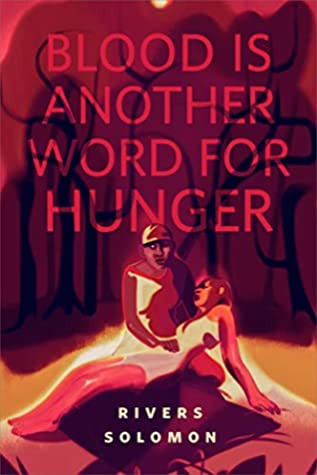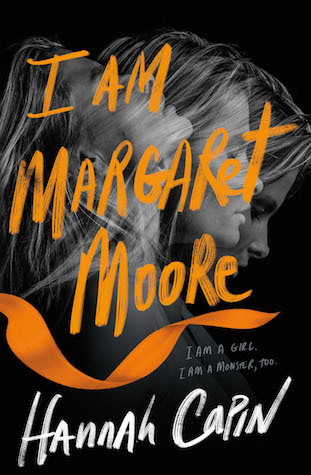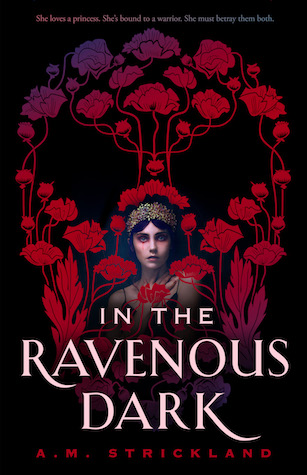
Content warnings: somewhat graphic birth and supernatural pregnancy, graphic suicide, gore, murder
Summary [courtesy of Goodreads]: Anger is an energy. A young girl, a slave in the South, is presented with a moment where she can grasp for freedom, for change, for life. She grabs it with both hands, fiercely and intensely, and the spirit world is shaken.
Free on tor.com, this gob-smack of a story is classic Solomon, and it’ll change your life.
An archetypal work of femme anger, this is a story about empowered, practically chthonic rage. The story of an enslaved 15-year-old girl whose murders of her enslavers trigger a series of monstrous births that resurrect a group of Black folks of all ages via her own womb, who then form a commune of sorts, this piece is an incredibly intense, shocking look at the horrible necessity of violence in the face of systemic evil. It’s also a shattering commentary on depression, loneliness, and the power of interpersonal connection and love despite personal misery.
Is it hopeful? In a way. Does it have a clearcut, easy message? Fuck no. Like with pretty much everything Rivers Solomon writes, I can’t say much about it because I could not BEGIN to do this story justice. Their staggeringly brilliant work renders me incoherent. Fortunately, it’s free to read, so you can read it yourself and have your own reactions (assuming you’re prepared for the array of content warnings it comes with).
SPOILER TERRITORY
All quotes, because Solomon’s writing really must speak for itself:
“Her heart should’ve ached for these women—they’d raised her from age six—but it did not. She was still seething, madder, in fact, than she’d been before the kill because her final act of rebellion had not brought the relief she’d imagined it would. These ladies who’d loomed Goliath in her life, who’d unleashed every ugliness they could think of on Sully, were corn husks now, souls hollowed out. Irrelevant. How could that be? How could folks so immense become nothing in the space of time it took a blade to swipe six inches?”
‘It was Sully’s unsoftened anger in the face of what she’d done that cut a path between dominions. The etherworld spat out a teenage girl, full grown, called Ziza into Sully’s womb. Ziza had spent the last two hundred years skulking in the land of the dead, but she rode the fury of Sully’s murders like a river current back to the world of flesh.”
“She stared up at the crescent moon and spat at it for the way it mocked her with its half-smile. Sully hated that grinning white ghoul, and with all the spite at the fates she could muster, she howled and she howled and she howled at it. She howled until she became part wolf, a lush coat of gray fur spiking from her shoulder blades and spine.”
“You an angel or something?” asked Sully. “Oh, I think you might be the angel. An avenging angel,” said Ziza.”
“She wished she missed them. She wished at the very least she felt sadness or guilt. But all she felt was the same old rage. It burned her up, leaving her numb, nerves charred. She’d done the thing she’d always dreamt of doing, and now what? Perhaps now it was her time to die.”
“Assaulted with such strangeness, Sully didn’t know whether to be joyful or frightened, to revel in this new inexplicable power or cower in its presence.”
“Sully had always been touched by a flash of darkness. On the plantation where she was born, slave women gossiped about her true nature. Her mother, who’d been sold away when Sully was five, called her moskti after the blood-eating fairy in stories of their old home back across the water. They possessed human bodies and kept them alive by feasting on the blood of anyone nearby. As soon as she had teeth, Sully drew blood whenever she fed from her mother’s breasts. Four months old.”
“What bothered Sully most about Ziza’s relentless happiness was that it was not the result of obliviousness, naivete, or ignorance. It was a happiness that knew pain and had overcome it.
‘“I don’t know how to feel nice.”
“You’re not a nice-feeling kind of person. I suppose that’s not who you’re meant to be. That’s all right. I like you mean and crotchety,” said Ziza.
‘“I’m bored of hurting,” she said. She thought of the ancestors she’d vesseled and brought back to life with the baptizing waters of her womb’s amniotic fluid. With Ziza, she’d cultivated a small sanctuary for them on this farm, a sanctuary that would grow to include the nearby town. But it was not enough. She needed the whole world for them.
“How many moments like this would it take for her raucous, angry soul to be soothed? How many songs? Were there enough in the world?’
“Sully let a single hot tear fall onto Ziza’s hand when she understood her spirit would never know true soothing, but wrapped up in Ziza, she saw pinpricks of true glory, a grace big enough to make it worth it. Perhaps there would not be peace, but there would be Ziza, and with Ziza, there was a future. Ziza hummed on, and in that moment, Sully was content just to listen.”


